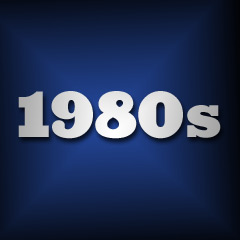
|
![]()
Greatest Films of the 1980s
1980 | 1981 | 1982 | 1983 | 1984 | 1985 | 1986 | 1987 | 1988 | 1989
Title Screen Film Genre(s), Title, Year, (Country), Length, Director, Description 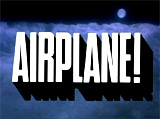
Airplane! (1980), 88 minutes, D: Jim Abrahams, Jerry Zucker, David Zucker
This absurdist, trend-setting, zany and hilarious comedy came from the writing/directing team of David Zucker, Jim Abrahams and Jerry Zucker (known colloquially as ZAZ and their brand of "ZAZ humor"). It was preceded by the team's screenwriting for John Landis' The Kentucky Fried Movie (1977) (the ZAZ trio of comedy writers were known as The Kentucky Fried Theater when they performed as a Wisconsin comedy troupe), and later they wrote Top Secret! (1984), and Ruthless People (1986). Airplane! cleverly used the airplane disaster film, such as Airport (1970), and the earlier serious film Zero Hour! (1957) as a parody- or spoof-stepping stone. This movie also revitalized the acting careers of Peter Graves, Lloyd Bridges, and Robert Stack, and launched the comedy career of Leslie Nielsen as the straight-faced, dead-panning Dr. Rumack, who up to that time was known mostly for B-movie dramatic roles, in films like Forbidden Planet (1956) and The Poseidon Adventure (1972). The plot was an excuse for a frantic, slapstick gutbuster filled with visual-sight gags, puns, verbal literalism: ("Surely you can't be serious." "I am serious, and don't call me Shirley"), rapid-fire satirical wisecracks, irreverent references to From Here to Eternity (1953) and Saturday Night Fever (1977) disco dancing, visual non-sequiturs, and much more. It was followed by a less funny ZAZ-less Airplane II: The Sequel (1982) by director Ken Finkleman. In the storyline, shell-shocked, alcoholic ex-military flyer Ted Striker (Robert Hays) pursued ex-girlfriend Elaine Dickinson (Julie Hagerty) - a stewardess on an ill-fated Trans-American flight from LA to Chicago with stricken pilots due to food poisoning, including Captain Clarence Oveur (Peter Graves) and Co-Pilot Roger Murdock (BB player Kareem Abdul-Jabbar). Striker was required to fly the plane, filled with an assortment of odd stereotypical characters, such as two black Jive Dudes (with subtitled dialogue), a guitar-strumming Nun (Maureen McGovern), a young female heart transplant patient on a stretcher with IV drip, and many more. To aid Striker, Elaine was instructed by Chicago's air traffic control tower supervisor Steve McCroskey (Lloyd Bridges) to activate the plane's plastic blow-up doll autopilot "Otto" - and later when Otto deflated, she had to manually inflate him. Striker's ex-commander Rex Kramer (Robert Stack) was able to ultimately talk the plane down for a rough but safe landing, and due to Striker's courage, Elaine rekindled her relationship with him.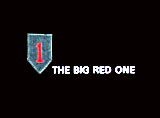


The Big Red One (1980), 113 minutes, D: Samuel Fuller
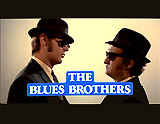

The Blues Brothers (1980), 133 minutes, D: John Landis
Director John Landis' rock-filled, anarchic, musical, action-adventure crime-comedy, with a plot derived from stars Dan Aykroyd's and John Belushi's popular SNL (NBC-TVs Saturday Night Live) sketch known as the "Blues Brothers," featured many cameo appearances and performers. The title characters were "Blues Brothers" - two white singers with soul who wore shades, and identical black suits and hats. In the opening scene, Joliet (Illinois) Prison inmate "Joliet" Jake Blues (John Belushi), a blues singer, was paroled after three years. Outside the prison gate, he met up with his brother Elwood Blues (Dan Aykroyd), driving a used, battered, super-powered Plymouth police car - dubbed their Bluesmobile. The brothers traveled to their childhood home in Calumet City, IL, where they visited the Roman Catholic orphanage (St. Helen of the Blessed Shroud) where they were raised. They met with their former teacher and head orphanage nun Sister Mary "The Penguin" Stigmata (Kathleen Freeman), who sent them on a "mission from God" to raise $5,000 (for property taxes) to save her orphanage from foreclosure. The brothers attended the Triple Rock Baptist Church, in the presence of Reverend Cleophus James (James Brown), who was preaching a sermon titled "The Old Landmark": "Do you see the light?...Have you seen the light?" The two had an epiphany (conversion experience), and dedicated themselves to raising the $5,000 for the orphanage after reassembling their R&B Blues Brothers Band. Elwood repeatedly spoke his famous line to Jake: ("We're on a mission from God!") to justify their brotherly activities. To avoid arrest by two Illinois State Police Troopers, they fled in their Bluesmobile, followed by a contingent of police cars. The comedy has become well known for its tremendous number of noisy and wasteful multi-car crashes and pile-ups on their way to and in the city of Chicago as they were relentlessly pursued in their Bluesmobile by police. There was an incredible amount of carnage, destroyed buildings and an entire shopping mall (Dixie Square Mall). In a run-down area of Chicago, they narrowly avoided being hurt by two bazooka rocket launches by a strange Mystery Woman (Carrie Fisher). To assemble former band members, they located them and recruited them. They also were confronted, while driving around in their Bluesmobile, by a traffic jam at Jackson Park caused by Head Neo-Nazi Leader (Henry Gibson) conducting a rally of "Illinois Nazis" on a stone bridge. The Blues Brothers forced the hateful Nazi followers to jump off the bridge into a lagoon when they drove through. While being pursued by troopers, there were numerous Blues Brothers' musical performances including in a soul food diner, at Ray's Music Exchange Shop in Calumet City, at Bob's Country Bunker in Kokomo, Indiana to a rowdy country-music crowd, and at the Palace Hotel Ballroom over 100 miles north of Chicago. As the film was approaching its end, the Mystery Woman was revealed as Jake's ex-fiancee whom he had abandoned at her wedding several years ago; Jake apologized and they reconciled. A massive car chase commenced as the Bluesmobile headed 106 miles southward toward Chicago, pursued by police officers and state troopers, the enraged Good Ole Boys, the Nazis, Illinois National Guardsmen, SWAT teams, MPs, helicopters, and other disgruntled characters. In the final scene, their dilapidated car sputtered to a stop at Daley Plaza. Inside the adjacent Cook County City Hall Assessor's office, the Blues Brothers were able to pay the orphanage's property taxes to one of the office clerks (Steven Spielberg in a cameo) - but were then promptly arrested and handcuffed with dozens of guns pointed at them. Following their arrest, the Blues Brothers played "Jailhouse Rock" during a prison concert to entertain the other inmates.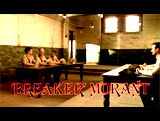

Breaker Morant (1980, Australia), 107 minutes, D: Bruce Beresford
This anti-war film's setting was during the era of the brutal Boer War (1899-1902) between the Boers (Afrikaaners) and the British Carabineers in the area of the Northern Transvaal - it was a struggle for independence. During the fighting, the elite Bushveldt Carabineers (Australians) were ambushed and Captain Hunt was captured, mutilated and killed. In revenge, Lt. Harry "Breaker" Morant (Edward Woodward) and his men took and executed prisoners. To end the war with the Boers and appease the Germans, British general Lord Kitchener selected three scapegoats to be put on trial: Morant, Lt. Peter Handcock (Bryan Brown) and Lt. George Witton (Lewis Fitzgerald). Lt. Colonel Denny (Charles Tingwell) presided over the 5-person general court-martial tribunal, held in a remote courtroom. Major Charles Bolton (Rod Mullinar) prosecuted, while inexperienced defense attorney Major F. Thomas (Edward Woodward) defended the three hapless soldiers in a sham trial. Thomas valiantly struggled to defend the men, arguing that in such an unconventional war, there were bound to be casualties, and unclear instructions about how to treat the enemy. Handcock and Morant were sentenced to death (and shot at sunrise), while Witton was sentenced to life (although released after three years).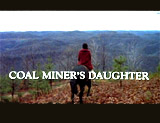


Coal Miner's Daughter (1980), 125 minutes, D: Michael Apted
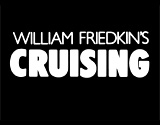




Cruising (1980), 102 minutes, D: William Friedkin
Writer/director William Friedkin's notorious, grisly slasher-thriller crime film told about a police investigation - it examined the seedy and dangerous underworld of gay S&M in NY's West Village heavy leather bars (including clubs such as The Ramrod, The Hellfire Club and The Mineshaft). NY Times reporter Gerald Walker's 1970 novel of the same name was the basis for the dramatic film, as well as recent articles detailing unsolved gay murders by Village Voice writer Arthur Bell. The gritty police thriller told about an NYPD police investigation to find a self-loathing homosexual serial killer who was targeting gays. A series of violent serial killer murders within the Big Apple's homosexual underworld was initiated by the discovery of body parts (an arm and a torso) found in the Hudson River. Captain Edelson (Paul Sorvino) assigned dark-haired police detective Officer Steve Burns (Al Pacino) - a supposedly-straight undercover cop, to investigate the unusual rash of gay killings, thereby connecting violence with the homosexual lifestyle. In order to fit the serial killer's victim profile, Burns was required to pose and transform himself into a gay man, in order to advance his career within the department; he was forced to keep his girlfriend Nancy Gates (Karen Allen) in the dark about his assignment. He was dispatched to locate and identify possible suspects and possibly to serve as 'bait' for the killer, in the Meatpacking District of NYC that catered to gay clientele with various sordid sex clubs. Burns assumed the name "John Forbes," moved into a West Village apartment, and began to regularly frequent gay bars (such as the Ramrod, Wolf's Den, the Eagle's Nest, the Anvil, and the Cock Pit, among others) to observe the scene; his nightly routine included applying makeup, wearing leather garb, and lifting weights. By film's end, Burns continued to wear his leather-garb and visit gay bars even after the Paul Vincent murder case (a gay college professor at Columbia University) appeared to be solved and the serial killer Stuart Richards (Richard Cox) was thought to have been apprehended, a last-minute, ambiguous final sequence opened up the suggestion that the sexually-confused Burns had taken on the persona of the killer.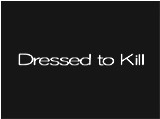

Dressed to Kill (1980), 105 minutes, D: Brian De Palma
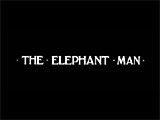

The Elephant Man (1980), 125 minutes, D: David Lynch
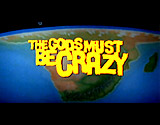
The Gods Must Be Crazy (1980, Botswana), 109 minutes, D: Jamie Uys
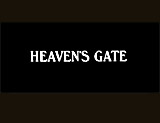

Heaven's Gate (1980), 219 minutes, D: Michael Cimino
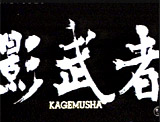

Kagemusha (1980, Jp.) (aka The Shadow Warrior), 162 minutes, D: Akira Kurosawa
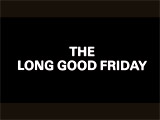


The Long Good Friday (1980, UK), 105 minutes, D: John Mackenzie
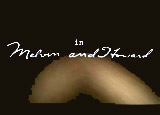

Melvin and Howard (1980), 95 minutes, D: Jonathan Demme
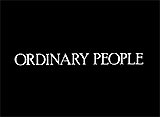

Ordinary People (1980), 124 minutes, D: Robert Redford
Actor Robert Redford's directorial debut film was an intense psychological drama (an adaptation of the Judith Guest 1976 novel by Alvin Sargent) about the Jarrett family, a tragically torn-apart family living in Lake Forest, IL, an affluent suburb of Chicago. It won four Oscars: Best Picture, Best Director, Best Supporting Actor, and Best Adapted Screenplay. The 4-person character drama was often accentuated with the brilliant mood-setting use of Johann Pachelbel's mournful adagio Canon in D Major. In a series of moving scenes and flashbacks, guilt-ridden, troubled 18 year-old high-school student Conrad "Con" Jarrett (Oscar-winning Timothy Hutton) suffered from severe PTSD. After a suicide attempt (slitting his wrists) and four months' hospitalization, Con admitted his feelings of fault about his older teenaged brother Buck's (Scott Doebler) accidental drowning (during a sailing trip revealed over the course of the film seen in flashbacks) in his late-night counseling sessions with his sometimes unorthodox psychiatrist Dr. Berger (Judd Hirsch). Eventually, Con was able to stop blaming himself for Buck's death. In contrast, Con's mother was a grieving, hostile, bitter, composed and rejecting mother Beth Jarrett (Mary Tyler Moore), while his father Calvin (Donald Sutherland), a successful tax attorney, was more warm-hearted and compassionate. Con's mother Beth was unable to sympathize with Con due to her prejudiced love for Buck and her continual coldness toward Con - and she became the main focal point, emphasized during her major defensive outburst at a Houston-area golf course during a vacation trip: ("Hate him! God, how could I hate him? Mothers don't hate their sons! Is that what he told you? Do you see how you accept what he says with no questions, and you can't do the same thing for me, you can't! GOD I DON'T KNOW WHAT ANYONE WANTS FROM ME ANYMORE!..."). In the final scene, Calvin directly admitted the loss of his love for his wife in the dining room: "You can't handle mess. You need everything neat and easy. I don't know. Maybe you can't love anybody. It was so much Buck. When Buck died, it was as if you buried all your love with him. And I don't understand that." Afterwards, Beth promptly packed up and departed in a taxi, leaving Calvin outside and deep in thought into the early morning hours. The closing scene was in the Jarrett's backyard before the credits, when Calvin told Conrad that a very shaken Beth had left for Houston to live for awhile. Predictably, Conrad blamed himself, but was angrily dissuaded by his father to take credit for Beth's decision to leave. The two came to a new understanding - hugged and embraced, and both pledged their love for each other in the film's final two lines.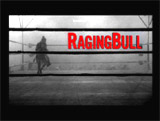


Raging Bull (1980), 129 minutes, D: Martin Scorsese
Director Martin Scorsese's magnificently visceral, vivid and real, black and white sports bio/docu-drama told about the rise and fall of a violent, suicidally-macho prize-fighter - the 1949 middleweight boxing champ Jake LaMotta (Robert De Niro). The film was regularly voted the Best Film of the decade of the 80s. In the major character study, the film opened with the retired boxer now as an out-of-shape, second-rate stand-up nightclub entertainer in NYC in 1964, twenty-three years later at the Barbizon Plaza Theatre. The remainder of the film was a flashback - a look back at the middle-aged man's life to try to understand why he was reciting lines of Shakespeare in his dressing room. In the film's many brutal and graphic boxing sequences (often in slow-motion with the spray onto the audience and the violent sounds of impact), LaMotta was a hard-headed, animalistic fighter. In the first sequence set in 1941, Jake was declared the loser (it was a Mafia-fixed fight) against his opponent Jimmy Reeves. Jake's brother Joey LaMotta (Joe Pesci) also served as Jake's contentious fight manager and often experienced bouts of domestic violence with Joey. Jake had grown up as an unlovable slum kid in a hellish neighborhood. Although married to his first wife Irma (Lori Anne Flax), he pursued 15 year-old, blonde "neighborhood girl" Vickie (20 year old Cathy Moriarty), first viewed at a swimming pool. In 1943, Jake fought and was victorious over boxer Sugar Ray Robinson, giving his opponent his first loss in the ring - and marking a long rivalry between the two. Once he became more successful after more fights in the mid-1940s, LaMotta married Vickie and bought a suburban home for them in the Bronx, but then by 1947, he slowly but predictably descended into fat slobbishness and was unfit to fight unless he trained vigorously and lost at least 15 pounds. Although he was able to continue boxing and won the middleweight title in the late 1940s, he was always violently and insanely jealous of Vickie and anyone who showed her attention or affection - he also accused Joey of being adulterous with her and "violating" her, and viciously assaulted both Vickie and Joey. The brothers became estranged, and Vickie threatened to leave him, but relented. In 1951 in his 5th and final middleweight championship boxing ring battle against Sugar Ray Robinson, Jake defended his title and lost the bloody bout. Five years later in 1956, Jake had retreated to Miami, Florida and retired from boxing, and was living there with Vickie and the children. He was transformed from a sleek professional boxer to an out-of-shape, stand-up entertainer at his own seedy nightclub, offering up crude jokes and flirtatious behavior. By this time, Vickie had decided to leave Jake for good and filed for divorce and custody of the children. In 1957, Jake was arrested on a morals charge for soliciting a client for a young 14 year-old female in his nightclub, and jailed (without bail money) and placed in solitary confinement in a Dade County stocade, where he banged his head into the wall and wailed: ("Why? Why? Why?...Why'd you do it? Why? You're so stupid"). In 1958, Jake took a job introducing strippers in a seedy NY bar. After a chance encounter with Joey on a NY street, he made a failed attempt at reconciling with his brother, but was ignored. The film ended with Jake portrayed again as an overweight and bloated night-club emcee at the Barbizon Plaza Theatre (a return to the film's beginning in 1964), where in his backstage dressing-room, he recited Brando's famous On the Waterfront "I coulda been a contender" speech in the taxi-cab scene, and shadow-boxed with his mirror image while mumbling: "I'm the boss, I'm the boss, I'm the boss...", before appearing on-stage.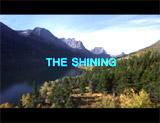


The Shining (1980, UK/US), 144 minutes, D: Stanley Kubrick
Creative director Stanley Kubrick's intense, gothic, haunted house horror film masterpiece was based upon sci-fi/horror author Stephen King's 1977 best-selling novel (his third novel under his own name) of the same name. However, the film's source material bore little resemblance to Kubrick's creation. With American co-screenwriter Diane Johnson, Kubrick moved from the conventions of traditional horror film thrillers, displacing them with his own, much more subtle, rich, symbolic motifs. As in many of his films, director Kubrick explored the dimensions of the genre to create the ultimate horror film of a man going mad. The film had beautiful, stylish work that distanced itself from the blood-letting and gore of most modern films in the horror genre. Kubrick deliberately reduced the pace of the narrative and expanded the rather simple plot of a domestic tragedy to over two hours in length, created lush images within the ornate interior of the main set, added a disturbing synthesized soundtrack (selecting musical works from Bela Bartok, Gyorgy Ligeti, and Polish composer Krzysztof Penderecki), used a Steadicam in groundbreaking fashion, filmed most of the gothic horror in broad daylight or brightly-lit scenes, and built an unforgettable, mounting sensation of frustration, rage, terror, ghosts, and the paranormal. The epic film followed the disintegrating Torrance family -- ex-teacher and aspiring writer Jack Torrance (Jack Nicholson in an over-the-top performance), his high-strung wife Wendy (Shelley Duvall), and young son Danny (Danny Lloyd). Jack was interviewed by hotel manager Ullman (Barry Nelson) to fill a position with his family as the off-season caretakers of an isolated, snowbound resort - the imposing, remote Rocky Mountain hotel, the Overlook. During the family's visit to the hotel, they learned about some of the hotel's disturbing history, and were warned about the long-term effects of winter isolation. Once Jack acquired the position and the family moved in, Danny became affected by a "psychic photograph" of a bloody series of historic murders committed at the hotel. The film's title "the shining" referred to the extra-sensory, paranormal psychic abilities possessed by the Overlook's head cook Hallorann (Scatman Crothers) and Danny. Hallorann specifically warned Danny about Room 237 (where later, Jack came upon a beautiful naked woman who turned into a ghastly old hag). With sleep deprivation and growing dementia, Jack eventually became truly insane and possessed by the hotel's haunted, misogynistic and murderous history. He fraternized at the bar with the hotel's ghosts and spectral bartender (Joe Turkel), and hours on end typed insanely: "All work and no play make Jack a dull boy" - in hundreds of different configurations. Danny was also overtaken by visionary images of the horrific past in the hotel - envisioning two young murdered daughters of the previous caretaker, and experiencing a premonition of waves of blood emerging from an elevator into the hallway. With a smiling, demonically-insane, shining face (and trademarked sneer and arching eyebrows), Jack began to homicidally stalk his own family members with an axe ("Heeeere's Johnny!") throughout the hotel, now transformed into a cartoonish, rampaging aggressor. When Hallorann was summoned back to the hotel from Florida, he was a victim of Jack's crazed homicidal urges. Unable to destroy his future posterity, Jack froze to death in a convoluted garden maze built on the grounds while chasing after Danny. The film's last image was of Jack in a photograph of a large group people at the hotel in 1921.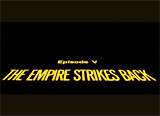


Star Wars: Episode V - The Empire Strikes Back (1980), (aka The Empire Strikes Back), 120 minutes, D: Irvin Kershner
This was the second in the famous Star Wars original trilogy (Episodes IV-VI) of fantastic science-fiction films, often rated as the best in the trilogy, and followed by Star Wars: Episode VI - Return of the Jedi (1983). It featured stunning special-effects, great characters and a rich, comic-bookish storyline. Although the Death Star had been destroyed three years earlier, it remained a dark time for the Rebels, who were struggling against the Emperor's Imperial forces, who quickly regrouped and began searching for the new location of the Rebel base. Darth Vader (David Prowse, voice of James Earl Jones) led the hunt for Luke Skywalker (Mark Hamill), taking orders from the commanding ruler of the galaxy, the Emperor. Freedom fighters led by Luke, regarding him as the Rebel's only hope, had established a new secret base in a hidden ice cave on the remote and icy planet-world of Hoth. However, their location was discovered and an evacuation was underway, as a major battle was fought between the Hoth planet Rebels and gigantic Imperial Snow-Walkers (AT-AT's) - armed walking transports. The Rebellion was defeated. Space jockey Han Solo (Harrison Ford), his co-pilot Wookie "Chewie" Chewbacca (Peter Mayhew), robotic droid C-3PO (Anthony Daniels) and Princess Leia Organa (Carrie Fisher) fled in Solo's Millennium Falcon to hide in an asteroid field, while Luke journeyed with the second droid R2-D2 (Kenny Baker) to the swampy planet of Dagobah, to train in the wise ways of the Force and Jedi Knights with wizened, gnome-like, greenish Jedi master Yoda (voice of Frank Oz) (who was living in hiding in a swamp since the Republic fell), to master the power of the Force. Although Han Solo's group thought they had avoided detection from the pursuit of Imperial Star Destroyers, they were silently being trailed by bounty hunter Boba Fett (Jeremy Bulloch), on their way to a "safe port" - the floating Cloud City on the planet of Bespin - owned by Solo's old friend and supposed-ally Lando Calrissian (Billy Dee Williams). Unfortunately, Darth Vader had already arrived and was awaiting them. Vader captured Han, Leia and Chewbacca, and also lured young Skywalker there to entrap him, by using his friends as bait. Meanwhile, Solo was placed into a carbonite-freezing chamber to be encased in suspended animation (it was a test so that Vader could be assured that the process planned for Luke was not fatal). When Luke arrived, he engaged in a fierce, face-to-face light-saber duel with the Sith Lord - Darth Vader, who wished to convert Luke to the Dark Side. Luke's hand was amputated with one swing - and then he was horrified when told that Vader was his father, Anakin Skywalker. During their duel, Lando's men surprised the Imperial troops, freed Leia and the enraged Chewbacca, and the group of rebels departed to save Han. The episode ended with Solo imprisoned by Jabba the Hutt and his bounty hunter Boba Fett (with Lando and Chewbacca in pursuit), while Luke was rescued and given a bionic hand.